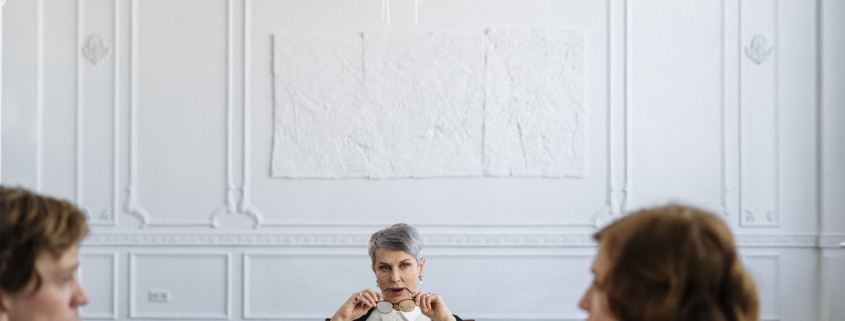What a Marriage Counselor Should Not Say
While some reports show that marriage counseling has a positive impact on 70% of couples, the journey to healing your relationship is not always easy. Even if you and your partner agree that therapy is the best move, the connection you have with your counselor can profoundly impact the health of your relationship with your partner as well. It’s hard enough to find a therapist in the first place, and then it can also be difficult to know how to evaluate them. It is also not common for couples that are new to counseling to know that they can leave their therapist, and find a new one. They are ultimately there to serve you and your needs, not the other way around. That is what has motivated us to create this piece on marriage counseling: what not to say. We want couples to have more confidence in being able to identify if they are in the right place to heal their relationship.
What Are the Signs of a Bad Couples Therapist?
It can be easy to attribute the problems with couples therapy to the pair seeking help. This can lead couples to stay with the wrong therapist much longer than they should. Let’s take a look at some of the signs of a bad couples therapist.
- Uses Too Much Jargon: Your therapist is not there to confuse you and show off that they have a degree. The language they use in sessions should be to help you discover the root cause of your issue(s) and progress to a positive future. The best help a counselor can give you is to guide you and your spouse through whatever challenges your marriage is facing without resorting to jargon that you don’t understand.
- Has Little or No Structure: Couples therapy needs to be conducted in a structured environment, with a clear cut plan and a positive end goal for the relationship. Before you meet with a counselor, ask them how they structure their sessions. They need to step in and give ample time for each person to speak their mind. There are too many emotions in play for a therapist to sit back and let the couple talk in circles for the whole session.
- Treats All Couples the Same: Inexperienced counselors will use similar treatment methods from couple to couple. While some healthy habits and practices can be recommended to couples across various circumstances, you want your therapist to treat your unique situation as such. The special dynamics of your relationship may fit a certain strategy on paper, but the right therapist will customize their process to fit your situation.
- Is Not Pro-Relationship: Whether or not you are married, counselors that push for divorce or breaking up as the top solution for your relationship may be too focused on you as an individual and not as a couple. So, what does pro-relationship counseling look like? Other therapists may practice what is called “marriage-neutral counseling.” This means the therapist will take a neutral approach toward whether or not you and your partner should stay together. Within these kinds of sessions, it is not uncommon for the counselor to encourage couples to split up rather than put in the work to better their relationship.
Can Couples Counseling Make Things Worse?
Simply put no, marriage counseling will not make things worse. The catch is that both parties must be willing to put in the work to fix the issues. However, there are therapists that can cause damage to your marriage and even you and your partner’s mental health. It all comes down to your work and how well you and your partner connect with your counselor. Although it’s not always easy to spot the signs of an ineffective counselor, if something feels off, talk to your partner and listen to yourself if the sessions just are not feeling right. Perhaps you’ll discover you’ve both been searching online, “when to stop marriage counseling” because neither of you feels you’ve made any progress after numerous sessions.
This can all sound a bit bleak, but before you jump the ship on counseling altogether, a shift in who you go to might be all the change you need. For example, if you feel your current counselor is discussing divorce too much, it would be a good idea to go to a team that practices pro-relationship therapy like Well Marriage Center.
What are the Signs Marriage Counseling is Working?
With a better understanding of what a bad situation can be, here are some clues that your counselor is a good fit:
- It Feels like Collaboration: You should feel like the therapist is on your team. For example, are they asking the right questions, are they truly wanting to get to know you both, do they demonstrate a good understanding of your relationship after multiple sessions, and are they focusing on the strengths of your relationship? If your couples therapist is taking sides, that is a sign that healing in your relationship will likely not occur.
- You Don’t Dread Going: If you and your partner are excited about going to therapy to work on creating the best situation, that is a great sign it is going well. Dreading going to counseling because you feel like all it does is start conflict could mean that your current session environment is not conducive to healing the relationship.
- You Are Doing the Work at Home: It is a great sign if all the hard work both of you put in does not end when you leave the session. You should be excited to put what you have been learning and practicing in therapy into action. When your therapist gives you a mindfulness activity to try the next time an argument starts, both parties should be excited to pause and implement it.
Well Marriage Center: Where Happy Futures Begin
When you invest in relationship counseling with one of our therapists at Well Marriage Center, you can trust you’re getting paired with certified therapists that have a wide range of treatment frameworks. It can also put your mind at ease that all of our therapists have dedicated their careers to solely helping couples forward. It is always beneficial to have a marriage counselor in your community: one who is deeply experienced with the nuances of committed partner relationships and who wants to see your marriage succeed and thrive.
Contact us today to set up a consultation with our Intake Coordinator, Melinda. She is ready and waiting to answer any questions you may have to ensure you are matched with the right counselor.










